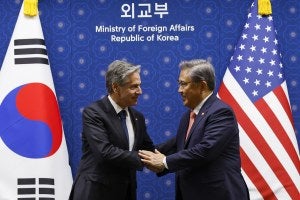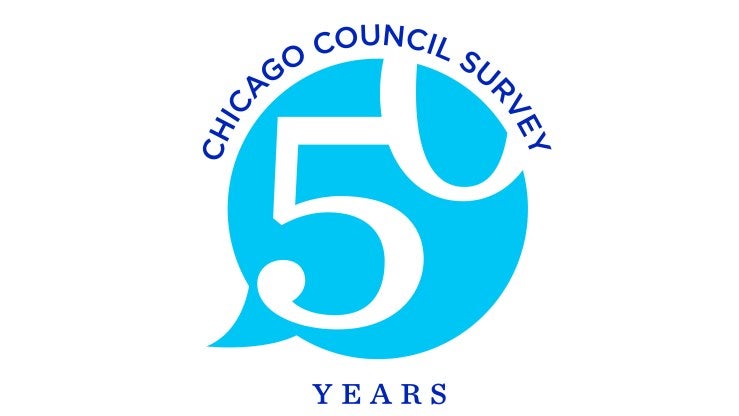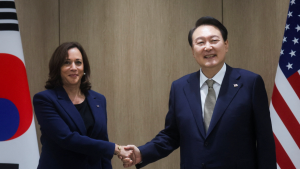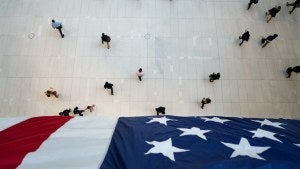Americans Remain Positive on South Korea

Meanwhile, about half say North Korea's nuclear program is a critical threat.
The US alliance with South Korea remains one of the most important in the world. From North Korea’s expanding weapons programs to US competition with China, South Korea is a key partner in US foreign policy planning. The 2024 Chicago Council Survey makes clear that the American public largely understands the value of that relationship.
Key Findings
- Seven in 10 Americans (69%) say the US security relationship with South Korea does more to strengthen US national security versus 26 percent that say it does more to weaken US national security. That consensus is strongly bipartisan.
- Nearly two-thirds of Americans (63%) support long-term military bases in South Korea. This is among the highest support for bases anywhere in the world, virtually tied with support for bases in Japan (62%) and Germany (64%). Both Republicans and Democrats are in agreement.
- Half of Americans (52%) say that North Korea’s nuclear program is a critical threat facing the United States, putting it on par with those that say Iran’s nuclear program is a critical threat (51%). Views on North Korea have remained largely unchanged since 2020 when 51 percent said it was a critical threat. Weakening democracy in the United States is the top critical threat (67%) in 2024.1
- A bare majority (51%) favor the use of US troops to defend South Korea in North Korea invaded South Korea. This is virtually unchanged from 2023 but is down 12 percentage points from 2021, when it was 63 percent. With the perceived threat of North Korea down from previous years and wars in Ukraine and the Middle East, Americans likely feel the need to focus on existing conflicts.
- 1
For full results of items shown in chart, please see Appendix.
This analysis is based on data from the 2024 Chicago Council Survey of the American public on foreign policy, a project of the Lester Crown Center on US Foreign Policy. The 2024 Chicago Council Survey was conducted June 21-July 1, 2024 by Ipsos using its large-scale nationwide online research panel, KnowledgePanel, in both English and Spanish among a weighted national sample of 2,106 adults aged 18 or older living in all 50 US states and the District of Columbia. The margin of sampling error for the full sample is ±2.3 percentage points including a design effect of 1.1229. The margin of error is higher for partisan subgroups or for partial-sample items.
Partisan identification is based on how respondents answered a standard partisan self-identification question: “Generally speaking, do you think of yourself as a Republican, a Democrat, an Independent, or what?”
The 2024 Chicago Council Survey is made possible by the generous support of the Crown family, the Korea Foundation, and the United States-Japan Foundation.



Related Content
 Public Opinion
Public Opinion
Half favor using US forces to defend South Korea if invaded by North Korea, down from 55 percent in 2022.
 Public Opinion
Public Opinion
A majority support using US troops to defend Seoul should North Korea invade, Council polling shows.
 Public Opinion
Public Opinion
Results and analysis of the Council's annual survey of American views on foreign policy.

